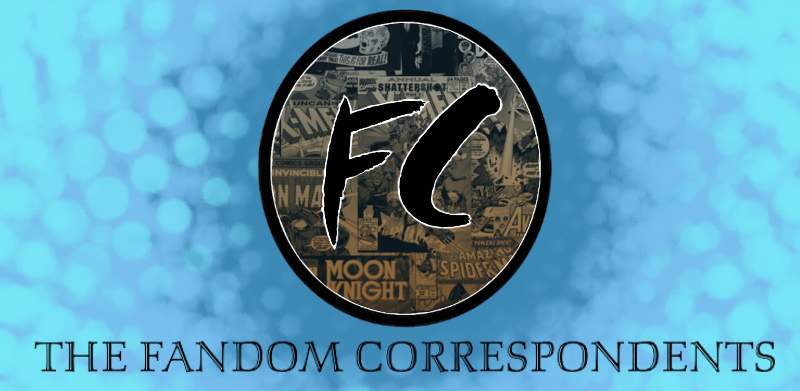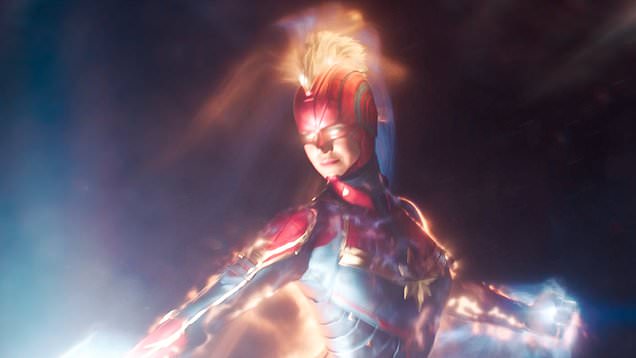In a stroke of irony, Captain Marvel–the MCU’s first female-led superhero movie–is the first comic book movie I did not see with my girlfriend since we’ve been together. I will be rectifying that soon, but the irony made me realize something about the new movie: Captain Marvel is one of those movies that can’t escape the political and social themes and drama surrounding it, but regardless of the context, it’s a movie that transcends gender and political identities. Don’t get me wrong, it’s a strong portrayal of womanhood and the female experience of adversity and triumph. The Alex Joneses of the world will hate it (which is fine, who cares about them). But it’s also a movie that takes the unfair burden of introducing a significant piece of Marvel lore and making cosmic obscurity audience-friendly and succeeds with aplomb. You don’t have to be a woman to enjoy Captain Marvel, but its importance for our sisters in fandom–particularly the younger ones–is an important milestone.
I love Captain Marvel. She’s been one of my favorite characters for years, and I’ve been personally campaigning for a Carol Danvers movie since 2012 Avengers rocked my world. So understand that when I say Brie Larson is everything I wanted for the role, that praise is coming from someone who knows their Captain Marvel stuff. She’s witty, confident, and passionate, and her fit to the role makes the character’s introduction a perfect addition to the Marvel Universe. The cast overall is stellar, and Marvel continues their pattern of nailing their castings for complex characters. The movie offers some of the coolest action sequences and most impressive visuals we have seen from Marvel to date. I was worried going into the movie that they would struggle to show just how powerful of a character Captain Marvel is, but her power significance is rather clearly demonstrated by the end of the movie. This character is a total cosmic badass, and with how long it has taken Marvel to produce a female-centric movie, such badassery was needed. I am hoping to see Brie Larson much more in the future for Marvel movies.
I left the movie feeling somewhat mixed about the character’s treatment. The character herself is accurate, and while some liberties were taken with storytelling (as is the usual with the MCU’s canon), it felt like a Marvel story. However, the task that Captain Marvel had in terms of world-building seemed unfair for the character’s introduction. In the span of a 2-hour movie, Captain Marvel had to not only establish her own character but also explain the Kree-Skrull conflict in the cosmic part of the Marvel universe in a way that was digestible for mainstream audiences. Comic book fans will know that this portion of lore is not a simple morsel of storytelling; to the contrary, it’s a rather involved area of cosmic Marvel that even some experts struggle to explain concisely. The movie is entertaining to watch and does an excellent job with further establishing the universal scale, but I couldn’t help feel that I would’ve enjoyed a more focused story for Danvers’s introduction. You leave the movie knowing that Captain Marvel is a badass, but I worry that her inherent value as a character is being obscured by the looming scale of Infinity War, Endgame, and a newly introduced cosmic race war that together form a heavy context difficult to standout from.
Overall, Captain Marvel is an excellent movie with terrific acting, interesting storytelling, and a good balance of emotionality and action. It ranks with some of the best Marvel movies regardless of Rotten Tomatoes sabotage that some of the insecure, manchildren comic book fans attempted (heads up, boys, don’t do that kind of stuff. It’s not a good look, and trying to sabotage a movie’s internet rating over its audacity to have a female lead won’t make you any more desirable to the ladies than your unironic waifu pillows and red pill subreddits have already). While I personally would have liked a more standalone movie, it serves as an excellent lead-up to Endgame and fills in many holes in the greater Marvel timeline.
The quality of the movie is unquestionable, and its importance in the grand scheme of things is on par with that of Wonder Woman and Black Panther. During my Black Panther review, I pointed out the importance of the character for diverse demographics, and that importance extends to Captain Marvel as well. Growing up, I had an excess of superheroes and comic book media to enjoy featuring characters that were not only likable but also looked like me. I could easily identify with the Batman, Spider-Man, and Superman’s of the world, and it was a privilege I really took for granted. Black Panther provided that important heroic resource for Black children everywhere, and Captain Marvel provides it for the female comic book fans that might not have it otherwise. Carol Danvers joins the elite group of women like Diana of Themyscira, Natasha Romanoff, General Okoye, Rey, Hermione Granger, Brienne of Tarth, and countless other modern characters in media that demonstrate to kids that girl power is real power and that heroism can be found not in your name or gender but in how you use your life to protect the weak and help the helpless. Female characters matter, and if I ever have a child, I know that Captain Marvel will be one of the first movies I use to show them that we can all be heroes, not because of who we are, but what we choose to do.
All Hail the Queen.




